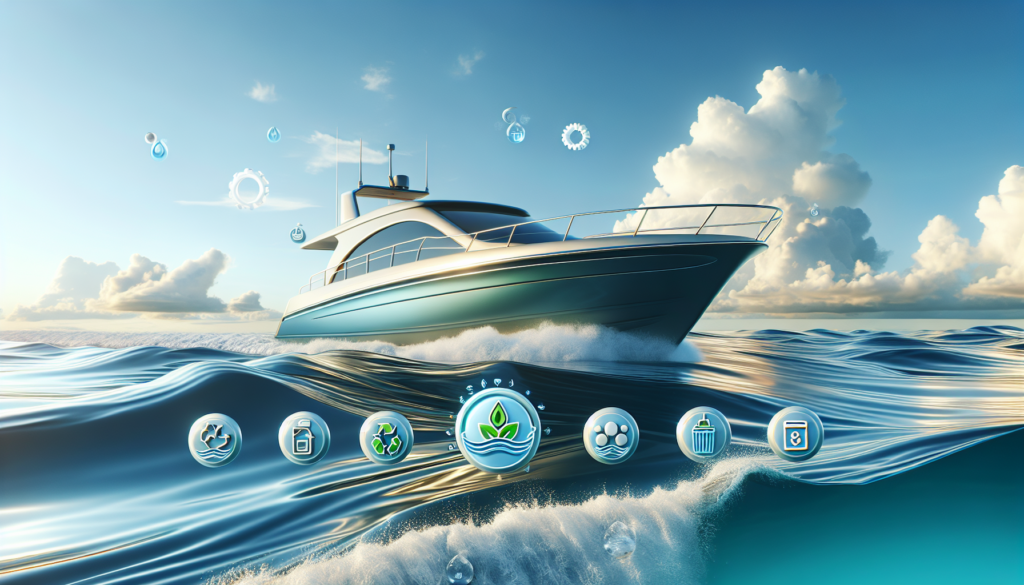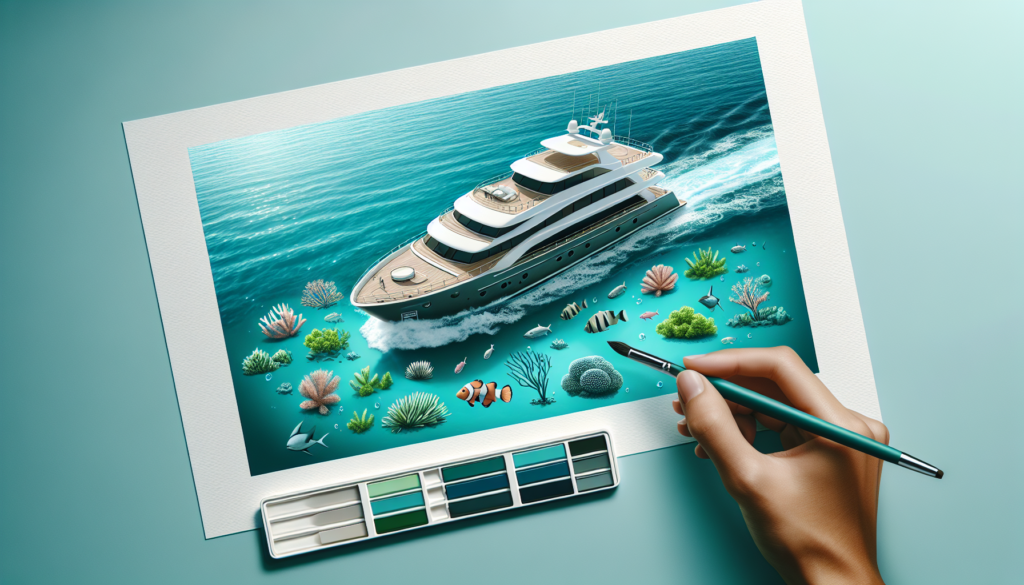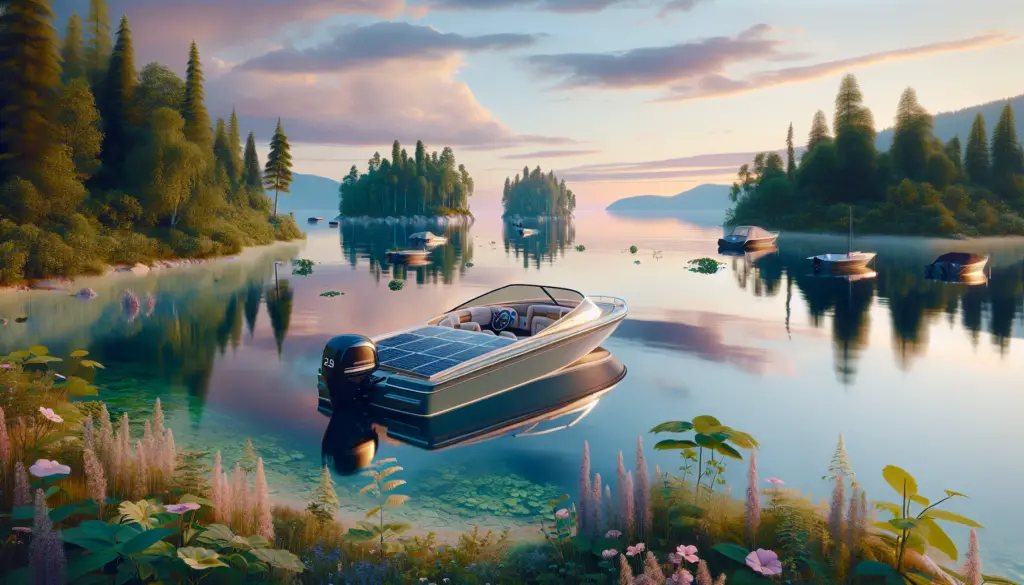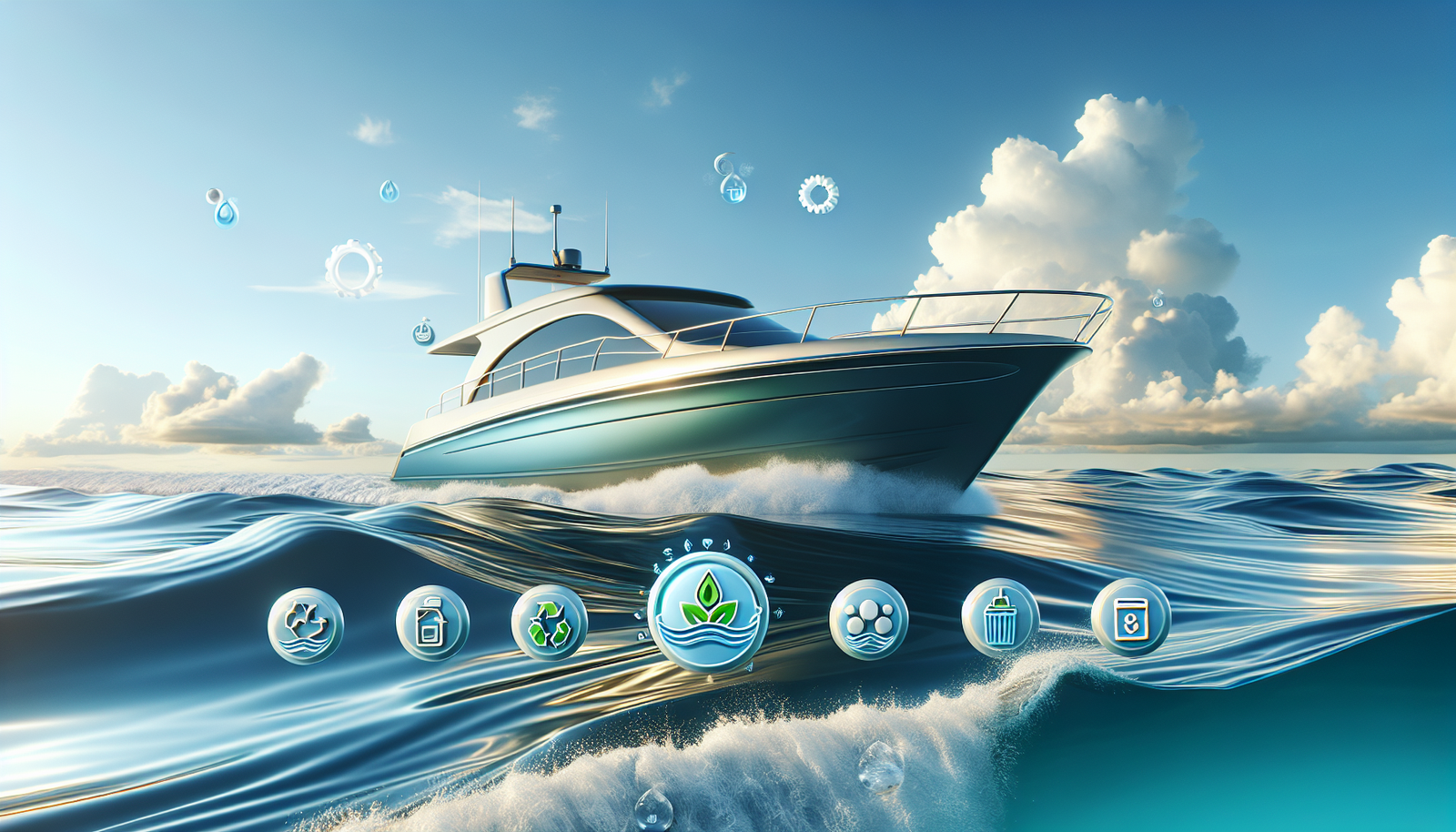You’ve decided to embrace the boating lifestyle, a fantastic idea! Now, have you considered ensuring that your fun adventures on the water are also friendly to the environment? In the “Beginner’s Guide to eco-friendly boating practices,” you’ll discover simple yet impactful ways to make sure your boating is sustainable. The article will shed light on the importance of eco-friendly boating practices and how they contribute to preserving our stunning oceans, lakes, and rivers. From fuel efficiency tips to waste management, you’re about to learn everything you need to make your maritime adventures as green as possible. Enjoy!

Understanding Eco-Friendly Boating
Eco-friendly boating refers to the practices and methods utilized by boaters to minimize their impact on the marine environment. It encompasses a whole range of actions, from the type of boat used, the equipment on board, how the boat is operated, to how waste is handled on board the vessel. It’s a comprehensive approach that aims to reduce the carbon footprint of boating activities.
Importance of Eco-Friendly Boating
Eco-friendly boating is important because it plays a critical role in minimizing the harmful impacts of boating on marine ecosystems. Unfortunately, some traditional boating practices can damage sensitive marine habitats and disturb marine wildlife. By adopting eco-friendly boating practices, you can enjoy your time out on the water without contributing to these negative impacts.
The Impact of Boating on the Environment
Many people often overlook the potential environmental impacts of boating. Conventional boating can contribute to water pollution, noise pollution, and even physical damage to sensitive marine habitats. Boat engines can leak oil and fuel into the water, while noise from engines and equipment can disturb marine wildlife. Further, improper waste disposal can lead to pollution, and the use of certain fishing gear can harm marine animals and their habitats.
Choosing an Environmentally Friendly Boat
When it comes to choosing a boat, there are environmentally friendly options available on the market today.
Types of Eco-Friendly Boats
One popular option is the electric boat, which runs on renewable energy and produces zero emissions. Hybrid boats are another excellent choice. Like hybrid cars, they use a combination of fuel and electricity, offering better fuel efficiency and fewer emissions compared to traditional boats. Solar-powered boats and sailboats are also viable eco-friendly choices.
Factors to Consider When Choosing a Boat
When choosing an eco-friendly boat, there are several factors to consider. These include the boat’s energy efficiency, the materials used in its construction, how it will be used (for example, there’s a big difference between a fishing boat and a sailing yacht), and your budget.
The Role of Material in Boat-Building
The eco-friendliness of a boat is not just about how it operates, but also about how it is built. Many traditional boats use hazardous materials that can harm the environment. Choosing a boat made from sustainable, low-impact materials can significantly reduce your environmental impact.

Eco-Friendly Boating Equipment
Choosing the right equipment can also help make your boating more eco-friendly.
Environmentally Friendly Boat Gear
When it comes to boat gear, some environmentally friendly options include LED lights, which use less energy than traditional bulbs; biodegradable cleaning products; and for outdoors gear, opt for items made of sustainable materials.
Using Renewable Energy Sources for Equipment
Solar panels and wind turbines can be installed on boats to provide renewable energy for running equipment. This reduces reliance on fossil fuels and lowers emissions.
Sustainable Fishing Gear for Boating
If you enjoy fishing, it’s crucial to use sustainable fishing gear. Avoid gear that can be lost and become ‘ghost gear’, which continues to trap marine life. Always ensure to retrieve your fishing gear and consider using gear with minimal potential for harm, such as circle hooks.
Sustainable Boating Techniques
Sustainability isn’t just about the boat and gear—it’s also about how you operate your boat.
Eco-Friendly Navigation Methods
One straightforward way to be eco-friendly is to slow down. High speeds can lead to more noise, larger wakes, and increased erosion of shorelines. Plus, slower speeds mean less fuel consumption.
Sustainable Boat Maintenance
Maintaining your boat is essential to its longevity and efficiency. Use eco-friendly cleaning products and make sure to perform maintenance on land to prevent pollutants from entering the water.
Fuel-Efficient Boating Techniques
There are various ways to improve fuel efficiency, like keeping your hull clean, not overloading your boat, and keeping your engine well-maintained.
Water Conservation on Board
Water conservation is another important aspect of eco-friendly boating. Try to use water efficiently and consider installing water-saving devices on your boat.

Waste Management on Boats
How you handle waste on your boat can dramatically impact the environment.
Importance of Proper Waste Disposal
proper disposal of waste prevents pollution and helps protect marine ecosystems. It’s critical never to throw trash overboard and dispose of it at proper waste facilities.
Methods of Waste Disposal on Boats
There are many ways to manage waste on a boat, from using biodegradable products, composting organic waste, recycling where possible, and proper disposal of wastewater.
Managing Sewage and Wastewater Onboard
Managing sewage is crucial for eco-friendly boating. Many boats have marine sanitation devices onboard, or boaters can opt to use pump-out facilities.
Reducing Noise and Light Pollution
Noise and light pollution are often overlooked but can greatly impact marine life.
Understanding the Effects of Noise and Light Pollution
Noise from boat engines and equipment can disturb marine wildlife, altering their behavior and potentially causing harm. Similarly, light pollution can confuse marine creatures and disrupt natural behaviors.
Ways to Reduce Noise and Light Emanating from Boats
Simple steps like using quieter engines, minimizing use of external lighting, and maintaining a slow speed can help reduce noise and light pollution.
The Role of Boating in Marine Life Disturbance
Boating activities can disrupt marine life, especially if boaters get too close to animals or their habitats. Always respect wildlife and keep a safe distance.

Eco-Friendly Boating Policies and Regulations
Understanding the rules can help ensure that your boating activities are eco-friendly.
Overview of Boating Regulations for Protecting the Environment
Many areas have specific boating regulations to protect the environment. These could cover aspects like speed limits, how close you can get to wildlife, and waste disposal procedures.
Importance of Understanding and Following Regulations
Understanding and following these regulations are crucial for protecting the marine environment. They are designed to minimize the environmental impact of boating and should always be respected.
The Role of Education in Eco-Friendly Boating
Education is a powerful tool in promoting eco-friendly boating.
Promoting Eco-Consciousness Among Boaters
Promoting eco-consciousness among boaters can greatly reduce the impact of boating activities on the marine environment. It’s important to share information and promote best practices.
Resources for Learning About Eco-Friendly Boating
There are a variety of resources available to learn about eco-friendly boating. These include online resources, local workshops, and boating courses that focus on environmental stewardship.
Importance of Boater Education Programmes
Boater education programs are incredibly valuable. They can help boaters understand their potential impact and what they can do to minimize it.
Community Initiatives for Eco-Friendly Boating
Communities can play a major role in promoting eco-friendly boating
Role of Local Communities in Promoting Eco-Friendly Boating
Local communities can encourage eco-friendly boating through initiatives like clean-up events, educational programs, and regulating boating activities.
Examples of Community-Led Initiatives
Around the world, many communities have led the charge in implementing eco-friendly boating practices. From creating designated marine protected areas to setting up recycling programs at marinas, there are plenty of ways in which communities can foster eco-friendly boating.
Contributing to Conservation through Boating
Boating can play a positive role in marine conservation.
Ways to Support Marine Life Conservation Through Boating
You can support marine life conservation through your boating activities by being conscious of your actions, minimizing your impact, and engaging in citizen science projects or conservation initiatives.
Understanding the Impact of Boating Activities on Marine Ecosystems
Boating can have immense impacts, both positive and negative, on marine ecosystems. It’s important to understand these impacts, and use that understanding to drive more responsible, eco-friendly boating.

